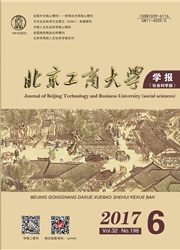

 中文摘要:
中文摘要:
目前,国外消费者开始慢慢对中国品牌有所认知,然而中国品牌国际化的关键是获得国外消费者的支持。为此,文章基于制度理论视角构建了品牌合理化战略、品牌合理性和国外消费者支持之间关系的概念模型,并收集了218份美国消费者问卷,通过AMOS分析表明,中国品牌国际化中的顺从战略、凸显战略均正向影响品牌实用合理性和社会合理性;操控战略正向影响实用合理性,但对社会合理性的影响不存在显著关系;而无论是实用合理性还是社会合理性都正向影响着国外消费者支持。研究结论还进一步表明,品牌合理性是中国品牌获取国外消费者支持的内化机制。因此,中国品牌的国际化要取得国外消费者支持,不仅需要重视产品、技术、人才等,更需要重视品牌合理性问题。
 英文摘要:
英文摘要:
At present, foreign consumers have come to know Chinese brands, but the key to the internationalization of Chinese brands is to get the foreign consumer support. Therefore, based on the perspective of institutional theory, this study constructs a conceptual model of the relationship among brand legitimation strategy, brand legitimacy and foreign consumer support. With 218 questionnaires collected from U. S. consumers, the results of AMOS analysis show that during the internationalization of Chinese brands, compliance strategy and highlighting strategy separately have a positive effect on pragmatic legitimacy and social legitimacy of brand. Manipulation strategy has a positive effect on pragmatic legitimacy, but does not have a significant effect on social legitimacy. Both pragmatic legitimacy and social legitimacy have a positive effect on foreign consumer support. The results also further prove that the brand legitimacy is the internalization mechanism for Chinese brands to obtain foreign consumer support. Therefore, to obtain foreign consumer support during the internationalization, Chinese brands need to pay attention to not only products, technology, talent, etc. but also the issue of brand legitimacy.
 同期刊论文项目
同期刊论文项目
 同项目期刊论文
同项目期刊论文
 期刊信息
期刊信息
